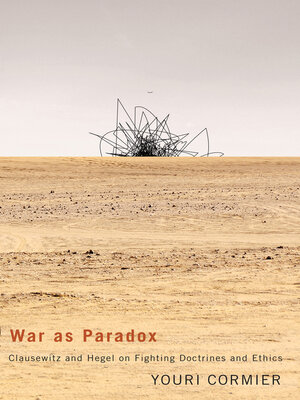War as Paradox
ebook ∣ Clausewitz and Hegel on Fighting Doctrines and Ethics · McGill-Queen's Studies in the History of Ideas
By Youri Cormier

Sign up to save your library
With an OverDrive account, you can save your favorite libraries for at-a-glance information about availability. Find out more about OverDrive accounts.
Find this title in Libby, the library reading app by OverDrive.



Search for a digital library with this title
Title found at these libraries:
| Library Name | Distance |
|---|---|
| Loading... |
Two centuries after Carl von Clausewitz wrote On War, it lines the shelves of military colleges around the world and even showed up in an Al Qaeda hideout. Though it has shaped much of the common parlance on the subject, On War is perceived by many as a "metaphysical fog," widely known but hardly read. In War as Paradox, Youri Cormier lifts the fog on this iconic work by explaining its philosophical underpinnings. Building up a genealogy of dialectical war theory and integrating Hegel with Clausewitz as a co-founders of the method, Cormier uncovers a common logic that shaped the fighting doctrines and ethics of modern war. He explains how Hegel and Clausewitz converged on method, but nonetheless arrived at opposite ethics and military doctrines. Ultimately, Cormier seeks out the limits to dialectical war theory and explores the greater paradoxes the method reveals: can so-called "rational" theories of war hold up under the pressures of irrational propositions, such as lone-wolf attacks, the circular logic of a "war to end all wars," or the apparent folly of mutually assured destruction? Since the Second World War, commentators have described war as obsolete. War as Paradox argues that dialectical war theory may be the key to understanding why, despite this, it continues.







